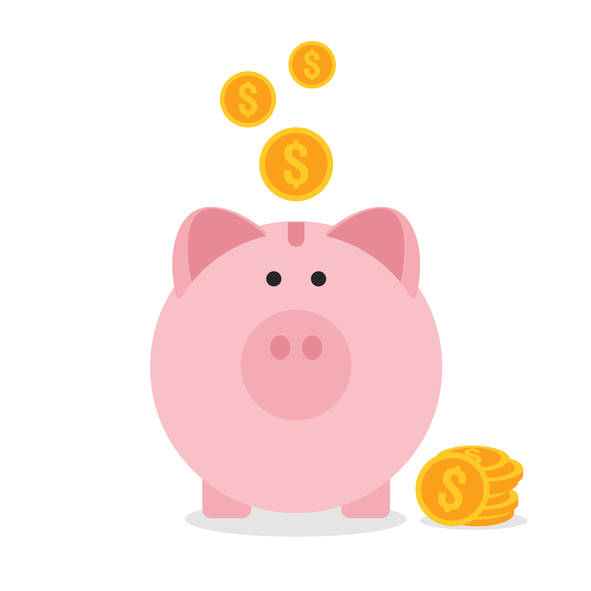First home buyers grant – buy now or buy later?
What is the first home owners grant?

The first home buyers grant VIC (FHOG) or first homeowners grant has been around in some shape or form since the early 2000s.
Back then, the grant was introduced by the Federal Government as a way to offset the potential impact of GST, which was introduced in 2000.
While the first home buyers grant was introduced by the Federal Government, it is administered and managed by each individual State or Territory Government, which has resulted in it changing over the years.
For example, the FHOG has been used to stimulate the construction sector from time to time by increasing the grant value for new properties.
Over the years, the first home buyers grant has helped tens of thousands of Australians into property ownership and has become even more necessary today in light of the increasing difficulty of saving a deposit to buy in Sydney and Melbourne in particular.
While the first home buyers grant used to be available for both established and new properties, it has been limited to new properties in most States and Territories since about the GFC.
This change, while stimulating the construction sector, has been a big disadvantage for the majority of first home buyers, who generally prefer to buy established properties for affordability and locality reasons.
What changes are happening for first home buyers in Victoria?
The Victorian Government has gone one step further and announced changes to its first home buyers grant, potentially to encourage investment in its regional locations as well as to stimulate the regional construction sector.
The proposed changes are yet to finalised however they include the intention to increase the FHOG from $10,000 to $20,000 for new homes built in regional Victoria and valued up to $750,000.
The increased first home buyers grant will apply for contracts signed in eligible regional Victorian council areas from 1 July 2017 to 30 June 2020.
According to State Revenue Victoria, the types of homes and construction quality that will be classed as an eligible transaction contract include:
- The purchase of a new residential premises, which can be a newly built home or a premises that is being sold as new for the first time;
- A comprehensive home building contract; or
- The construction of a home by an owner/builder.
The Victorian Government is also proposing to slash stamp duty for first homebuyers of both established and new properties from 1 July 2017.
The exemption will apply for eligible first home buyers in Victoria who purchase a home with a dutiable value of $600,000 or less after 1 July 2017.
First home buyers purchasing a property valued between $600,001 and $750,000 will be entitled to a concessional rate of duty, calculated on a sliding scale.
Please note, these initiatives are not yet finalised and are likely to be ratified by the Victorian parliament in June 2017.
How will this affect the property market?
 The axing of stamp duty for some Victorian first home buyers will save them tens of thousands of dollars from 1 July.
The axing of stamp duty for some Victorian first home buyers will save them tens of thousands of dollars from 1 July.
For example, a property valued at about $605,000 would usually attract a stamp duty payment of more than $30,000.
According to the Victorian Government, the stamp duty changes are likely to help some 25,000 first home buyers purchase a home.
Meanwhile, the proposed doubling of the first home buyers grant for regional Victorian new property purchases will increase the appeal of living outside of Melbourne for young families, according to the Victorian Treasurer Tim Pallas.
The $20,000 grant was a substantial boost to the position and the capacity of regional first home buyers, he said, which would make it easier for young people to buy and live in regional Victoria.
The State Government expects the boosted grant to help about 6,000 first home buyers.
Should you buy before or after July 1st 2017?
While there has been quite a lot of press coverage about the proposed changes, it’s important to understand that they have yet to be finalised.
In fact, these initiatives have to be approved by the Victorian Parliament before they can begin.
If you’re a first home buyer in Victoria and want to make the most of the proposed changes, however, it’s imperative that you don’t sign any contracts before 1 July 2017.
That’s because all of the changes only come into effect, once passed by parliament, from 1 July 2017.
Now that doesn’t mean settlement after that date. It means an eligible Contract of Sale, which is dated on or after 1 July 2017.
If you sign a contract before that date, you will not be eligible for any of the proposed stamp duty concessions or increases to the first home owners grant in regional Victoria.
It’s a solid line in the sand – contracts dated before 1 July 2017, the old rules apply; contracts on or after 1 July 2017, the new rules do.
Intuitive Finance – the smart choice
 Buying your first home is a dream for the majority of Australians.
Buying your first home is a dream for the majority of Australians.
But there are myriad things you need to understand, including the ins and outs of Victorian first home buyer grants as well as the many different home loan options available.
The world of banking and finance can be a pretty daunting one for both novice and sophisticated investors and since our establishment in 2002 we’ve focused on providing outstanding service and business standards.
This approach was vindicated when we were named Victoria’s favourite mortgage broker at the Investors Choice Awards.
So, if you’re a first home buyer in Victoria about to embark on your property ownership journey, why now contact Intuitive Finance today to ensure you have the right information and expert support on your side from the very beginning.
And not only can you book a complimentary consultation, you can also download our free guide “8 Things First Home Buyers Need to Understand About Finance”.
Disclaimer:
The information provided in this article is general in nature and does not constitute personal financial advice. The information has been prepared without taking into account your personal objectives, financial situation or needs. Before acting on any information you should consider the appropriateness of the information with regard to your objectives, financial situation and needs.
- Don’t buy property in a trust before reading this - February 3, 2026
- When should you refinance? Navigating RBA rate cuts and loyalty rates - January 23, 2026
- What the latest inflation data means for borrowers with the upcoming February RBA decision - January 20, 2026
